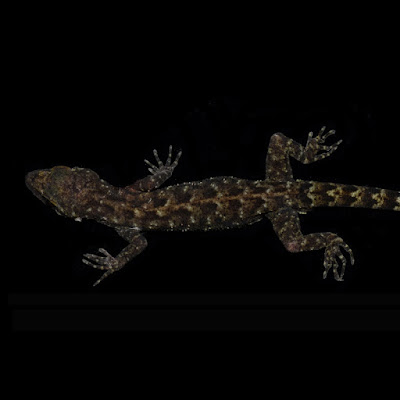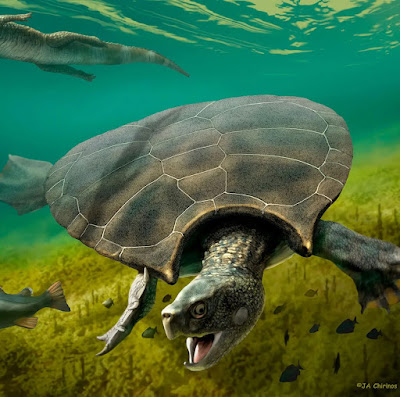[Most Recent Entries] [Calendar View]
Thursday, February 13th, 2020
| Time | Event | ||
| 2:11a | [Herpetology • 2020] Cyrtodactylus urbanus • A New Cyrtodactylus (Squamata: Gekkonidae) from Guwahati, Assam, India
Abstract We describe a new species of Cyrtodactylus from Guwahati city in the state of Assam, India and provide additional data on the recently described Cyrtodactylus guwahatiensis. Cyrtodactylus urbanus sp. nov. falls in the newly defined khasiensis group within the Indo-Burma clade of Cyrtodactylus and is the poorly supported sister taxon to Cyrtodactylus khasiensis. The new species differs from other members of the khasiensis group in mitochondrial sequence data (12.5–17.1 % uncorrected pairwise ND2 sequence divergence) as well as aspects of morphology including the number and arrangement of precloacal pores in males, the number of mid-ventral scales and paravertebral tubercles, and colour pattern. This is the second Cyrtodactylus endemic to the Guwahati region, the fourth from Assam and the twelfth from Northeast India. Keywords: Reptilia, Biodiversity, Northeast India, ND2, urban biodiversity, systematics Cyrtodactylus urbanus sp. nov. Jayaditya Purkayastha, Madhurima Das, Sanath Chandra Bohra, Aaron M. Bauer and Ishan Agarwal. 2020. Another New Cyrtodactylus (Squamata: Gekkonidae) from Guwahati, Assam, India. Zootaxa. 4732(3); 375–392. DOI: 10.11646/zootaxa.4732.3.2 | ||
| 3:54a | [Paleontology • 2020] Stupendemys geographicus • The Anatomy, Paleobiology, and Evolutionary Relationships of the Largest Extinct Side-necked Turtle
Abstract Despite being among the largest turtles that ever lived, the biology and systematics of Stupendemys geographicus remain largely unknown because of scant, fragmentary finds. We describe exceptional specimens and new localities of S. geographicus from the Miocene of Venezuela and Colombia. We document the largest shell reported for any extant or extinct turtle, with a carapace length of 2.40 m and estimated mass of 1,145 kg, almost 100 times the size of its closest living relative, the Amazon river turtle Peltocephalus dumerilianus, and twice that of the largest extant turtle, the marine leatherback Dermochelys coriacea. The new specimens greatly increase knowledge of the biology and evolution of this iconic species. Our findings suggest the existence of a single giant turtle species across the northern Neotropics, but with two shell morphotypes, suggestive of sexual dimorphism. Bite marks and punctured bones indicate interactions with large caimans that also inhabited the northern Neotropics. Systematic paleontology Testudines Batsch, 1788. Pleurodira Cope, 1864 sensu Joyce et al., 2004. Podocnemididae Cope, 1868. Eymnochelyinae sensu Ferreira et al., 2018. Stupendemys geographicus Wood, 1976. Synonymy: Caninemys tridentata (Meylan et al., 2009) Stupendemys souzai (Lapparent de Broin et al., 1993; Bocquentin et al., 2006) Stupendemys sp. (Gaffney et al., 1998) Podocnemididae indet. (Gaffney et al., 1998) E.-A. Cadena, T. M. Scheyer, J. D. Carrillo-Briceño, R. Sánchez, O. A Aguilera-Socorro, A. Vanegas5, M. Pardo, D. M. Hansen and M. R. Sánchez-Villagra. 2020. The Anatomy, Paleobiology, and Evolutionary Relationships of the Largest Extinct Side-necked Turtle. Science Advances. 6(7); eaay4593. DOI: 10.1126/sciadv.aay4593 Extinct giant turtle had horned shell of up to three meters phys.org/news/2020-02-extinct-giant-turt Fossils shed new light on car-sized turtle that once roamed South America theguardian.com/science/2020/feb/12/gian |
| << Previous Day |
2020/02/13 [Calendar] |
Next Day >> |







